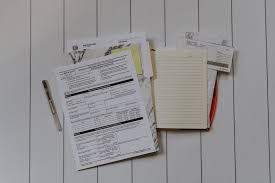
Monthly Checklist for Freelance Bookkeepers
Staying organized and consistent is crucial for freelance bookkeepers managing multiple clients. A monthly checklist helps ensure accuracy, timely reporting, and compliance with financial regulations. For freelancers, this structured approach not only improves efficiency but also builds client trust and satisfaction. At FreelancerBridge, we provide a comprehensive monthly checklist tailored specifically for freelance bookkeepers to streamline their workflow and deliver outstanding results every month.
Long Description
For freelance bookkeepers, managing financial records accurately and on time is essential for client success and business growth. A well-structured monthly checklist is an invaluable tool to keep your bookkeeping tasks organized and error-free. Below are the key components every freelance bookkeeper should include in their monthly routine to maintain high-quality financial records and boost client confidence:
1. Review and Reconcile Bank Statements
Start each month by comparing your clients’ bank statements with their bookkeeping records. Identify and resolve any discrepancies to ensure accuracy in reported balances.
2. Update Accounts Payable and Receivable
Check all invoices issued and payments received. Record outstanding payments and bills to maintain clear visibility of cash flow.
3. Categorize and Record Transactions
Ensure every transaction is properly categorized according to your client’s chart of accounts. Proper classification helps in accurate reporting and tax preparation.
4. Manage Payroll and Employee Expenses
If your client has employees, verify payroll entries, taxes withheld, and reimburse employee expenses accurately each month.
5. Review Credit Card Statements
Match credit card charges against receipts and categorize expenses appropriately. This prevents errors and supports proper tax deductions.
6. Prepare Financial Statements
Generate key financial reports such as Profit & Loss (P&L), Balance Sheet, and Cash Flow statements. These reports help clients understand their financial health and make informed decisions.
7. Monitor Budgets and Forecasts
Compare actual financials against budgets or forecasts to identify variances and advise clients on necessary adjustments.
8. Ensure Compliance and Tax Readiness
Track and record sales tax, VAT, or other applicable taxes. Prepare for upcoming tax filings by organizing all necessary documentation and reports.
9. Backup and Secure Financial Data
Maintain regular backups of all financial records and bookkeeping software data to avoid data loss. Use secure cloud storage solutions for added protection.
10. Communicate with Clients
Provide monthly summaries or reports to clients highlighting key financial insights, upcoming obligations, and recommendations.
Benefits of Using a Monthly Checklist for Freelance Bookkeepers
- Increased Accuracy: Systematic reviews reduce errors and discrepancies.
- Timely Reporting: Consistent monthly processes ensure deadlines are met.
- Improved Client Trust: Regular updates and transparent reports enhance client relationships.
- Better Cash Flow Management: Keeping track of payables and receivables helps clients maintain liquidity.
- Simplified Tax Preparation: Organized records make tax season less stressful and more efficient.
How FreelancerBridge Supports Freelance Bookkeepers
At FreelancerBridge, we connect freelance bookkeepers with clients looking for reliable, detail-oriented financial professionals. Our platform offers tools, resources, and community support to help you master your monthly bookkeeping routine and grow your freelance business successfully.













